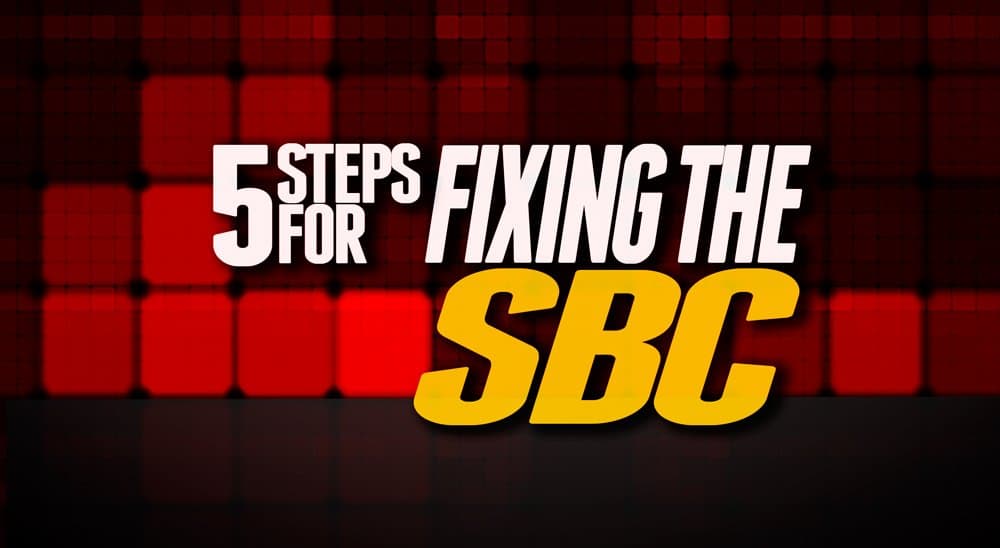Considering the complex issues swirling around the Southern Baptist Convention (SBC), I’m not sure anyone has a definitive word on how to fix what ails us, especially as we rub against a culture increasingly more hostile to the gospel. There is no silver bullet to fix all that plagues our great convention of churches.
Truth is, we are broken people, raised by broken parents, living in a broken world, and our only hope is the transformational power of the Lord Jesus to fix our brokenness. Yet, it is through our brokenness that our Lord works most powerfully through His church.
A friend of mine asked, “John, what do you think would ‘fix’ the SBC?” I offered five transformational “musts” that have the potential to position Southern Baptists for a movement of God:
1. We must return to being a convictional people. It is one thing to say you believe. It is quite another to behave like you say you believe. Most Americans have assented to the realities of the historical Jesus. But that doesn’t make them authentic Christians. They may have adopted a cultural form of Christianity that enables them to disconnect from their religion while they dabble in all kinds of debauchery.
History records that Southern Baptists have been known as people of conviction. They attend church. They read their Bibles. They frown on the use of recreational drugs. They value sexual purity and a clean conscience. As a matter of discipline, they even tithe their gross income. Yet now, surveys indicate that we are no different than the world.
The solution? We must go to our knees confessing our sins before the One who is faithful and just to forgive us. Then we must change. We must live as if we are more motivated by a passion for the Lord and His purposes than about our personal happiness in a consumer-driven culture.
2. We must weep for the lost. I remember watching my Royal Ambassador leader fall on his knees at the altar and lay a folded note in front of him. Then, I saw his tears and heard him call out to the Lord for the souls of the men he worked with and the boys in my Sunday school class. Tellingly, that church regularly saw the people on his list come to faith in Christ.
We read about the pitiful baptism statistics, but do we honestly care about lost people and their eternal destiny? How often during our worship services do we call the “saints” to the altar to pray for the lost persons He has planted in our sphere of influence?
3. We must confess our prayerlessness. I fear we have relied on our best flesh to accomplish what only God can do. Tweaking the systems to fit an agenda by one group of leaders as opposed to another group of leaders is just another chair arrangement on the Titanic.
Needed is a renewed visitation to our personal and corporate altars where we humble ourselves before the Lord and confess that we cannot do church, missions, church planting, evangelism, theological education, apologetics or any other thing until God’s Holy Spirit speaks into our lives.
If we want to work in the power of our flesh, the Lord will allow us to do so at an incredible cost. Why should He continue to use us? Why not another group more faithful to His ways? O God, have mercy on us.
4. We must equip a new generation about the value of cooperative ministry. Pastors are called to equip their people, and part of their messaging to new disciples is that we are not independent contractors for God’s kingdom causes.
Southern Baptists are part of a multi-generational, multi-ethnic cohort passionately working to reach individuals in our sphere of influence and simultaneously touching the lives of people around the world. Our cooperative goal is that every nation will hear the gospel message.
We must own this task personally and work with others to accomplish the Great Commission. On the whole, my generation is focused primarily on things that benefit “me.” I’m encouraged about a rising generation that sees beyond themselves and recognizes the efficiencies and effectiveness of the body of Christ on cooperative mission with our Lord.
5. We must return to the mustard seed principle. We must work from the small to the broad, from a small group to grand influence. Manipulating the large to serve the small doesn’t work.
For Southern Baptists this means the mission boards, seminaries and state ministries are sustainable because grassroots Southern Baptists feel they are engaged in the work. My concern is that many Southern Baptists feel we have become a convention that caters to the large and the corporate. This is not true, but too often perception is reality.
We must value all sizes, shapes and styles of New Testament churches. We must speak of the worth of every level of Southern Baptist life from the rural congregation to the urban Bible study; from the Baptist association to the state convention to the national entities; from the work of local mission volunteers to the work of career missionaries in hostile cultures where no one knows your real name except the Lord.
It has been said if you put two Southern Baptists together you can get four opinions. As far as what “must” happen to fix the SBC, I’m just saying.

